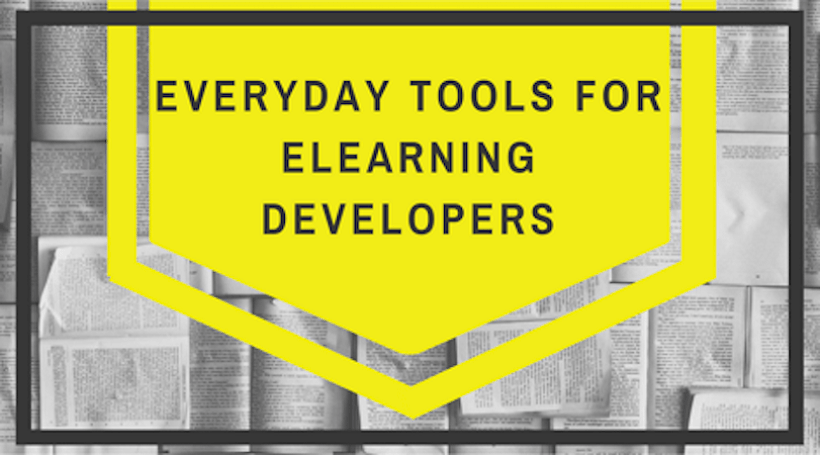How To Overcome The Most Common eLearning Project Management Challenges
As a manager working on eLearning courses, it is important to balance project management skills with technical expertise. Dealing with various moving parts in the project -Subject Matter Experts (SMEs), Instructional Designers, quality assurance reviewers, clients, deadlines, project goals etc.- means that the team’s process and vision needs to be well defined and in sync. Whether teams are working in the same space or distributed over different locations, having a well-structured process and the right tools to overcome challenges can greatly reduce time and effort in the project.
In this article, we look at some of the challenges to the process of eLearning project management that can hamper success.
1. Remote Collaboration
Teams and clients are distributed all over. Having conference calls and video meetings is one aspect of the solution but not always an option, especially when you have time zones dividing stakeholders. Keeping remote collaboration structured and accessible enough for everyone involved is very important to meeting goals. Exchanging messages and emails constantly can be tedious for team members. It can make collaboration overwhelming.
eLearning project managers need to make sure their teams have clarity of instruction and the right tools to overcome any handicaps that they may have in the collaborative process. Break down various tasks and have smaller teams attacking them. This will help make things easier. There are many collaboration tools also available to help. Trello and Asana are generic project management tools that can still be used for eLearning. However, there are tools more specific to eLearning as well. zipBoard is an option. Right from brainstorming ideas with your team at the initial stage, to developing storyboards and right till the quality assurance review stage, it can simplify remote collaboration.
2. Subject Matter Expert Feedback
eLearning project managers will tell you that feedback across stakeholders is a major component of the development process. A survey by Articulate revealed that developers spend 40% of their time working with Subject Matter Experts. Be it courses for education or corporate learning, managing the time of Subject Matter Experts is one of the secrets behind a successful eLearning project. Subject Matter Experts are full-time professionals and respected members of their domain, so inherently their time is going to be at a premium. Set your expectations when you start working together and be ready to accommodate their schedule.
Andy Petroski, who has nearly two decades of experience in the eLearning domain, described managing feedback from subject matter experts as one of the foremost challenges during development of projects. As Andy laid it out in his process, every stage of development is followed up with validation from and collaboration with Subject Matter Experts. Whether at the initial stage of setting objectives and evaluating content, or the design and storyboard phase, or towards the last stage of implementation and testing, working with Subject Matter Experts is a vital part of the process throughout.
3. Quality Assurance
Project managers need to describe key objectives and goals so that everyone is on the same page from start to finish. Post this, quality assurance reviews help ascertain that those targets have indeed been met. Clients will especially want review sessions at periodic intervals to track progress and assess status of deliverables.
This article by Arunima Majumdar highlights four areas that the QA process should take care of during eLearning development. These are:
- Curriculum.
- Learning design.
- Course content.
- Delivery process.
Course curriculum has to be exact and not so long it becomes difficult for learners to keep up with. Quality assurance has to assess that learning is engaging as intended for the users. Learners, today, use a variety of different devices to access learning. That is why it is necessary for QA reviews to check that the course is responsive across all intended devices, no matter what the resolution or screen size. Another area to check is the navigation of the course so that learners are able to find their way around the material without any hassle.
4. File Sharing And Version Control
Managing various resources can become cumbersome for managers, and even individual team members. Whether collaborating remotely or in the same space, having distributed files all over the place is big source of grief. Designers and project managers, even Subject Matter Experts need one central location from where they can access all the documents and files related to the project. There will be files for curriculum, project requirements, storyboards, various drafts of the course and more. Here is where tools like Dropbox, Box, Articulate Tempshare and Google Drive can help eLearning teams.
These tools are also useful for version control and maintaining iterations of various media assets that are used in the project. This way collaborators can always go back to see their previous work and see how it compares to the exisitng version.
Tackling The Challenges With The Right Tools
For all the challenges laid out above that eLearning project managers face, there are a number of tools available to tackle them as mentioned. This post neatly breaks them up based on various challenges, such as file sharing for managing resource, project management tools for tracking the status and progress of various phases of course development, and eLearning review tools for ensuring that the course meets all the guidelines and feedback from all stakeholders can be managed.
In case you’d like to see an extensive list of eLearning development tools for Instructional Designers and quality assurance reviewers, you can find that here.








